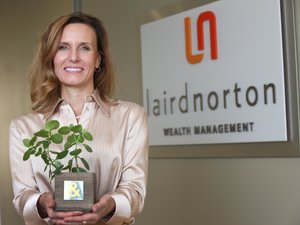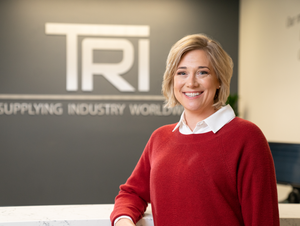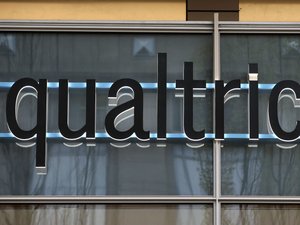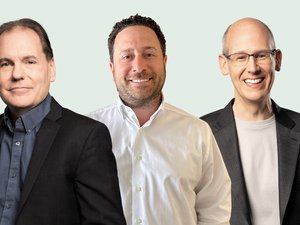Syed Hamid volleyed back and forth with a group of about a dozen investors for two hours before noticing something strange in his meeting.
Hamid, CEO and founder of the Bellevue-based software testing company Sofy, was trying to raise money to keep his startup growing. He had talked to dozens of firms, tweaked his pitch deck about 15 times, and dealt with the stress of trying to keep his business capitalized and his employees employed.
The meeting with this venture capital firm was scheduled for one hour but went for two. The questions kept coming. What is the total addressable market? Why are you the right person to build this company? Who else is on your team? Why should we trust you with millions of dollars?
While answering question after question, Hamid noticed one person in the meeting hadn’t said a word.
“Later on, when I had a debriefing with my managing partner, I asked him how was the feedback,” Hamid recalls. “He told me this 12th guy was actually a psychologist. Their intent was when they were grilling me, they wanted to know how I’m going to react.”
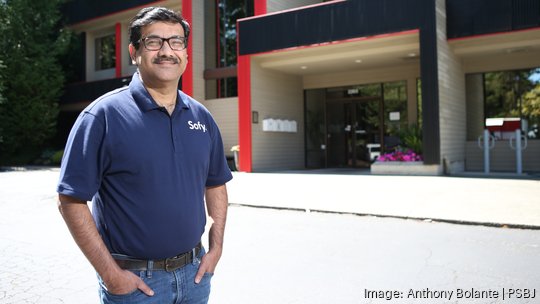
To raise money, founders like Hamid endure months of long nights, grueling interviews and endless networking because it only takes one “yes” to change their fortunes.
“You just need one. That’s the magic,” says Gaurav Oberoi, CEO and co-founder of Seattle-based legal tech company Lexion. “What I’m looking for the whole time is one lead.”
'Promise me I can sit next to one of them'
The general consensus is that founders start thinking about their next round as soon as they raise the previous round.
Startups and their investors model out how long the company can stay alive and how much it can grow with the capital it has over a set amount of time, generally 18 months. Founders start preparing up to a half year before they truly need the money with a slideshow pitch deck. The slides highlight the business problem, the market size, the startup’s solution and its team, among other key points.
But the most labor-intensive aspect of fundraising is figuring out which firms to pitch to and getting a foot in the door. It’s a numbers game.
Oberoi said he started with a list of 136 firms. He eliminated many due to conflicts or other issues, but he in some form talked to at least 70. At least 35 of those firms, Oberoi said, he engaged with seriously.
Rajeev Nagpal, co-founder and CEO of Seattle-based game studio BebopBee, said he talked to roughly 50 firms. Justin Beals, co-founder and CEO of Seattle-based security compliance startup Strike Graph, said he talked to upward of 200 investors.
Many founders say cold calls are out of the question. Investors will only show real interest if founders have a connection at the firm or an introduction from someone in their network. Melinda Haughey and Chelsey Roney, co-founders of the Bellevue-based map-building startup Proxi, said this involves scouring LinkedIn for any kind of connection to a target firm, even if it means messaging someone they went to college with 10 years ago.
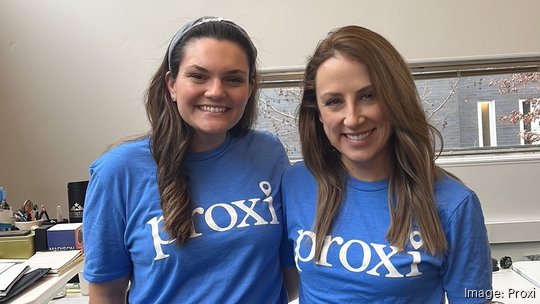
If it works — and someone is willing to make an introduction — Roney and Haughey craft a personalized email to every firm. OpenAI helps. They also use a common founder-investor connection tool called Signal from NFX. Users give the tool access to their email, and it will comb their contacts to see who in their network has a connection to a specific firm.
Roney and Haughey started with a list of roughly 200 firms. They found a connection with about 70 and met with somewhere between 30 and 40.
Being opportunistic is key. Oberoi remembers getting a text from Kirby Winfield, founding general partner at Seattle-based Ascend.vc, about a dinner Winfield was putting together at Staple and Fancy in Ballard. Oberoi describes himself as a “mercenary” about these networking events, only going to ones that can benefit his company.
“I hit Kirby back and was like, ‘Are there going to be any Series B investors there, and can you promise I can sit next to one of them?’” Oberoi recalls. “He was like, ‘Yes and yes. Come.’”
Oberoi sat next to Sri Chandrasekar, managing partner at Point72 Ventures, and it went well. The firm led Lexion’s Series B round.
'This is what a rock band feels like'
Conversations often start with a single partner or associate at the firm. The half-hour introduction is focused on learning the basics about the startup. If there’s serious interest, a second meeting is scheduled, this time with a larger group of partners.
Beals said he usually gets about 30 minutes into his pitch deck before these meetings get derailed and they turn into a blitz of questions about the company’s business and plan. At this point raising money becomes a full-time job and founders spend days jumping from pitch to pitch. Hamid said it became his full-time job for about two months during the thick of the process.
“I guess this is what rock bands feel like,” Oberoi says. “They’re repeating the same thing day in and day out. Come hit play, go on autopilot, repeat. It definitely feels like that. Especially when I hop onto Zoom. Hop on to another one. Start the pitch all over again.”

Haughey and Roney compare their pitches to a choreographed dance where the two play off each other. They show up to pitches early to review their research and the investor. They start their pitch with how they know each other and then jump into the team and their vision for the company.
Beals studied theater in college, which has served him well as a storyteller in pitch meetings. His favorite play he performed was “No Exit” by Jean-Paul Sartre, which is about three characters trapped in hell depicted as a plain room.
The most important practice for pitching comes from improv, Beals says. Engineers like to say “no,” but it’s important to get used to saying “yes, but” when talking to investors.
“In a selling role, you need to be able to say, ‘Yes, but we need to rearchitect our database,’” Beals says.
Oberoi describes the days as wake up, pitch all day, respond to emails, eat dinner, get back online with his co-founder and spend two or three hours taking care of homework from investors, follow up with anyone who wanted a second meeting and repeat.
The work rarely stops. In one meeting, Oberoi remembers an investor having the news on in the background. It quickly became clear that an insurrection was happening in Washington, D.C. Oberoi and the investor paused to watch the now-infamous Jan. 6 insurrection unfold live. After a few minutes of watching in stunned silence, the two wrapped up their meeting.
Investors, meanwhile, are doing their homework on founders. Hamid said one firm, unbeknownst to him, talked to his former managers and people he managed to gauge his character and personality.
'The power shift has changed'
The emphasis on networking and connections makes fundraising extra difficult for historically excluded groups like minorities and women.
A November report from nonprofit Diversity VC and Penn State University found only 1.87% of venture capital investments from the firms surveyed were set aside for DEI investments.
According to an April report from Deloitte, women made up just 26% of investment professionals in 2022, while Black employees made up just 5% of investment professionals.
All tech networks are not created equal. Roney spent more than five and a half years at Microsoft before launching Proxi with Haughey, but they say big tech connections don’t matter that much in the world of startups and venture capital.
The struggle of raising money is accentuated right now by a dry venture capital market.
According to data from PitchBook and the National Venture Capital Association, Seattle-area startups landed $1.4 billion across 171 deals during the first half of 2023. That’s far off the pace from 2022 when Seattle-area startups landed $7.8 billion across 479 deals. There were 494 deals worth $9.2 billion in the Seattle area in 2021.
The difficult economic environment has drastically changed the nature of fundraising meetings. Questions that used to be all about potential growth now focus on how to make money. It’s also not uncommon for investors to be 10 minutes late to a 30-minute meeting, founders say.
“That seems more egregious recently,” Haughey says. “They don’t have to impress founders anymore because the power shift has changed.”
Most meetings are virtual. In one instance, however, Beals was supposed to have one in person. But when he showed up to the meeting room, all the partners attended through Zoom, making him the only person physically in the room.
'We have to sell companies on us'
Kirby Winfield will take meetings from his car when not working at a local coffee shop, which includes anything from Starbucks to Zoka, tucked away near U Village and the Burke Gilman Trail.
Winfield founded his venture firm, Ascend, four years ago. He gets up at 5 a.m. every day and works seven days a week. On weekdays he usually works 12-hour days. On weekends, he only works five hours.
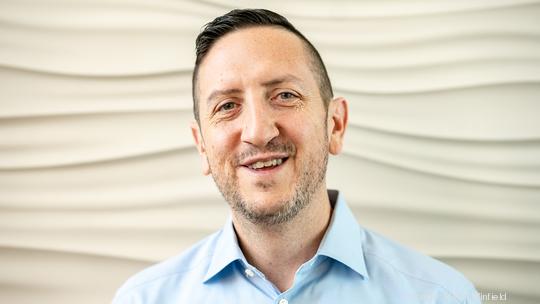
As much as founders want to raise capital, investors don’t want to miss out on having equity in the next major tech company. Ascend gets many inbound requests, but it also does outreach to startups. Winfield said Ascend is especially interested when someone of note on LinkedIn has changed their profile to “working on something new” or has founded a company labeled “stealth.”
“For every great founder who comes in warm, there will be someone who we never heard of who ends up raising a terrific round from investors in the Valley, and we’ll say, ‘Well, we should have been in front of that,’” Winfield says. “You can’t just sit and hope those things come into your net.”
Winfield says treating a meeting like a sales pitch is a mistake. He is most interested in why founders feel they are the right person to grow the company.
He follows up with every founder he meets within 24 hours. Most founders are respectful even in rejection. Only one has flown off the handle at Winfield, using an expletive and calling him a “clown.”
Chris Picardo, partner at Seattle-based Madrona Venture Group, says founders need to balance having confidence while also being open to new ideas and feedback from investors. It’s a mistake to misrepresent anything about the startup or to dodge tough questions.
Madrona’s first meeting with founders is on Zoom, but the second meeting is about 50-50 between Zoom or in-person. The third meeting is at Madrona’s offices with the full partnership present, along with seltzer waters, coffee and all manner of Coke. Eating, especially chips, is not allowed due to all the chewing noises.
Who is pitching whom can be a moving target. At the early stages, founders are often trying to win over investors. But if a founder has a great idea and a lot of interest from other firms, it’s up to the firm to court that founder and win the deal.
In one instance, Winfield sent a founder a first-edition copy of Raymond Carver’s “What We Talk About When We Talk About Love” to win over the founder. Picardo said he spent about five multihour sessions with one founding team getting lunches and coffee.
“We have to sell companies on us. We have to sell the rest of our team and investors on the companies we’re looking at,” Picardo says. “There’s a lot of really good venture funds out there who are super smart, and founders have an amazing amount of choice.”
'It's just all part of the process'
Before Highspot raised hundreds of millions of dollars and hit a value of $3.5 billion, the company consisted of a few co-founders working out of a rental home living room with a whiteboard in Madison Park.
Highspot co-founder and CEO Robert Wahbe says the economic environment and founders’ backgrounds are major factors in what fundraising efforts look like. In general, the earlier stages are all about the team and the total addressable market. When a company has been doing business and growing for years, however, the conversation is focused on margins, churn and profit.
“It becomes much more of a conversation about looking at spreadsheets,” Wahbe says.
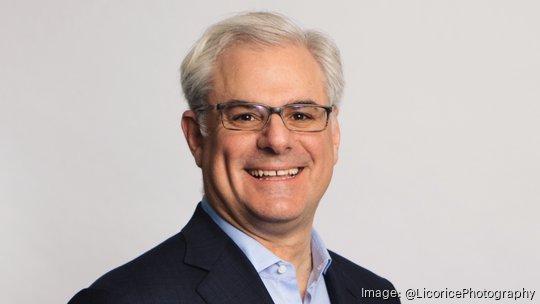
Highspot, a Seattle-based sales software company, raised $200 million in 2021 and $248 million in 2022.
Wahbe says some investors looking at early-stage companies have done no homework on the startup and will leave 20 minutes early from a one-hour meeting. At the later stage, investors might show up with a 60-page report about the business.
Those reports come from conversations with analysts, competitors and customers. Given that these late-stage companies have been around for a while and firms are considering nine-figure rounds, investors aren’t going to leave anything to chance.
It’s also more likely in late-stage companies for the founders to choose which investors they want to partner with, not the other way around. Wahbe says during one round, he told an interested firm Highspot would make a decision in two weeks. He got a call at the airport from the firm asking how it could make the deal happen that day. Wahbe insisted the company was waiting two weeks to make the decision.
On the plane ride, however, Wahbe’s assistant let him know the firm’s senior partners were on the plane behind him to meet him in San Francisco. Wahbe and the partners ended up getting an Asian-fusion dinner in San Francisco. Wahbe, who didn’t disclose the investor, says Highspot did ultimately partner with the firm.
But the dynamics of a deal are different depending on a startup’s stage.
Hamid says momentum is a factor and founders should try to close the round fast. It’s a tactic he used while closing Sofy’s $7.75 million round in August 2022.
“I was telling people you have two days to decide,” Hamid says. “You should always define your own timeline.”
The stressful, time-intensive process of raising money comes with the territory of being an entrepreneur, which often involves doing a little bit of everything.
Gavin Woody, co-founder and CEO of the veterinary telehealth startup Felix&Fido, once spent a day bouncing between studying spreadsheets and being on the roof of his company’s new vet clinic checking out aging air conditioning units.
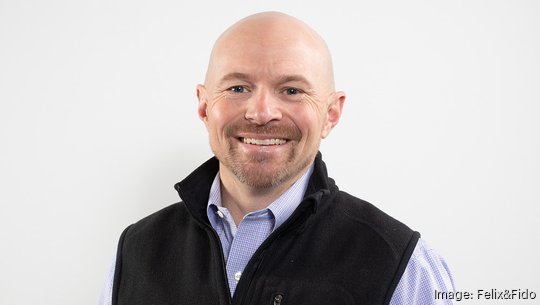
After months of networking, hearing “no,” doing extra homework, pitching and working around the clock, if founders land that major round, it’s really only the start. That money needs to be deployed, and the company needs to grow in a way that satisfies investors.
When Highspot was still a young company, Wahbe remembers running into a friend at a social event who had just raised a nine-figure round. Wahbe congratulated the colleague, who compared fundraising to a series of islands. With every round, you’ve been kicked off that island and have to swim to the next larger island to survive.
The colleague, in charge of a late-stage company, felt like he had just been kicked off the last island. There were no more islands. There were sharks in the water. And he had to make it to a public offering.
“I don’t think of funding as the end all, be all. It’s just part of the process,” Wahbe says. “Funding is one of these funny things where it’s clearly worth taking a minute and celebrating, but not two minutes.”
